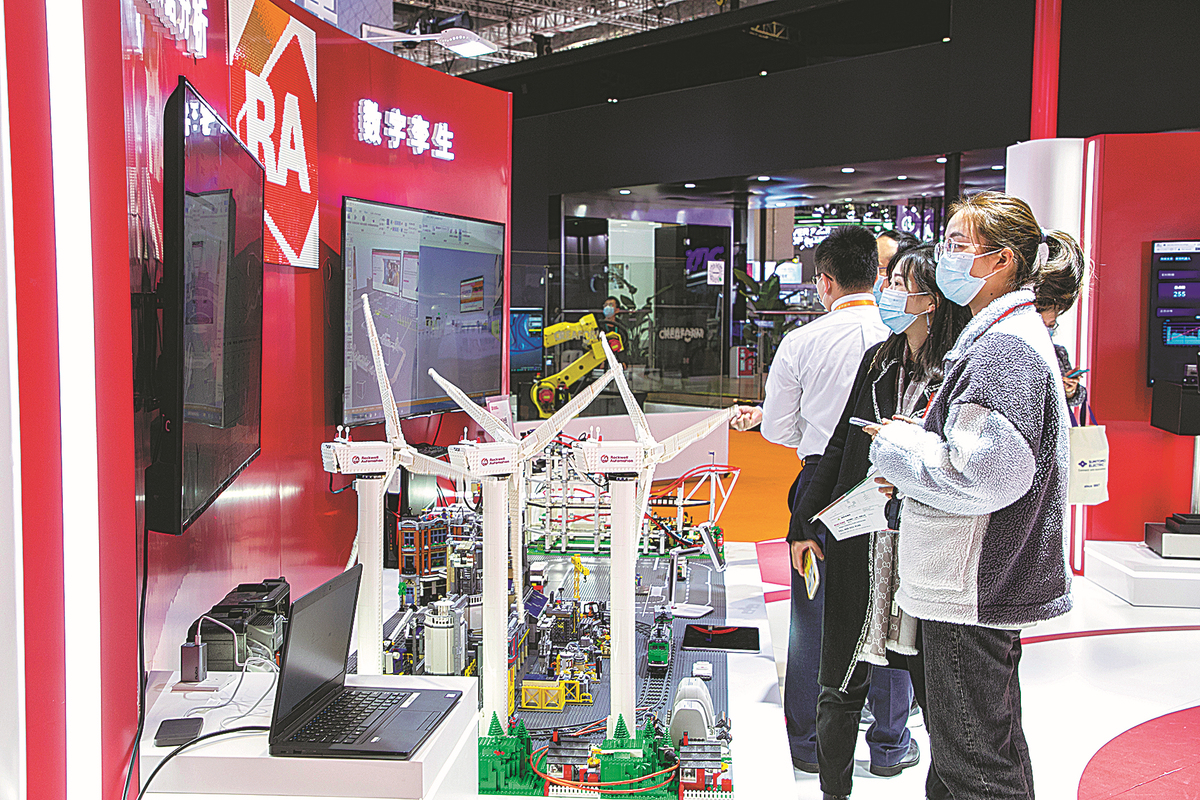Rockwell Automation aims to play greater role in country's digitalization
By FAN FEIFEI | CHINA DAILY | Updated: 2022-06-23 10:16

Rockwell Automation, a global leader in industrial automation, is accelerating steps to help the digital and intelligent transformation of China's manufacturing enterprises by integrating cutting-edge technologies like industrial internet, artificial intelligence, virtual reality and augmented reality.
Wang Hao, vice-president of partner development at Rockwell Automation China, said the company will focus on expanding its product portfolio, stepping up its localization push, deepening cooperation with partners, and recruiting more professionals in the Chinese market.
Saying that China has taken a leading position in emerging industries like electric vehicles and life sciences, Wang added that Rockwell Automation sees great development potential in China and will push forward technological innovation in the world's second-largest economy, and then replicate the successful experience in other markets.
The nation has attached great importance to digitalization and new technologies, with smart manufacturing witnessing robust growth in recent years, Wang said, adding that the company could achieve double-digit growth in the Chinese market this year.
He said Rockwell Automation has worked hard to create a smart manufacturing ecosystem and continuously empower the digital transformation of China's manufacturing sector by establishing Rockii Alliance, a nonprofit organization in collaboration with partners.
For instance, the company has helped Nanjing Puyuan Ice Cream Machinery Manufacturing Co, a major ice cream equipment manufacturer in China, build a digitalized factory and China's first fully automated intelligent production line in the ice cream industry.
By empowering various sectors via automation, digitalization and smart technologies, the US-based conglomerate aims to enable clients to achieve breakthroughs in terms of safety, energy, environmental protection and efficiency, support China's goal of achieving carbon neutrality, and promote the country's high-quality and sustainable development.
"To better meet local partners' demands, we have established smart manufacturing innovation centers in China, which integrate cross-border talent in information technology, operational technology and other industries, and provide lifecycle services for our clients," said Wang Le, vice-president of market access at Rockwell Automation China.
"China's firm determination to continue opening-up provides us with great opportunities for further development. By leveraging our expertise in industrial automation and digital transformation, Rockwell Automation knows how to help local clients expand into the global market and introduce overseas partners into China," Wang said.
"Rockwell Automation has been in China for over 30 years, and we have long been committed to the China market," Wang said. He underlined the significance of grasping the new development opportunities brought by digital transformation and the country's dual-circulation development paradigm that takes the domestic market as the mainstay while letting domestic and foreign markets complement each other.
Research firm International Data Corp said 65 percent of the world's gross domestic product is projected to be digitized by 2022, and direct investment in global digital transformation will surpass $6.8 trillion from 2020 to 2023.
"The next five years will be a golden period for pushing forward digitalization, and governments around the world have attached great significance to digitalization," said Kitty Fok, managing director of IDC China, adding that rapid development of the digital economy will bolster the advancement of digitalization.
The country's spending on digital transformation is expected to reach $1.5 trillion in the 2021-2024 period, with an average annual growth rate of 17 percent, IDC said in an earlier report.
More efforts must be made to enhance enterprises' organizational innovation capabilities and technology architecture capacities, as well as strengthen overall competitiveness in the process of digital transformation, Fok added.
Xiang Ligang, director-general of the Information Consumption Alliance, a telecom industry association, said emerging digital technologies represented by 5G, big data and AI have played a critical role in enhancing operational efficiency, cutting costs, and improving the core competitiveness of traditional industries amid downward economic pressure.
Li Wei, deputy head of cloud computing and big data research at the China Academy of Information and Communications Technology, a government think tank, said the digitalization of enterprises serves as the cornerstone of the digital economy.
Enterprises should speed up the pace of digital transformation, concentrate on consumers' requirements, integrate online and offline channels, as well as promote the transformation and upgrading of traditional industries, Li said.























